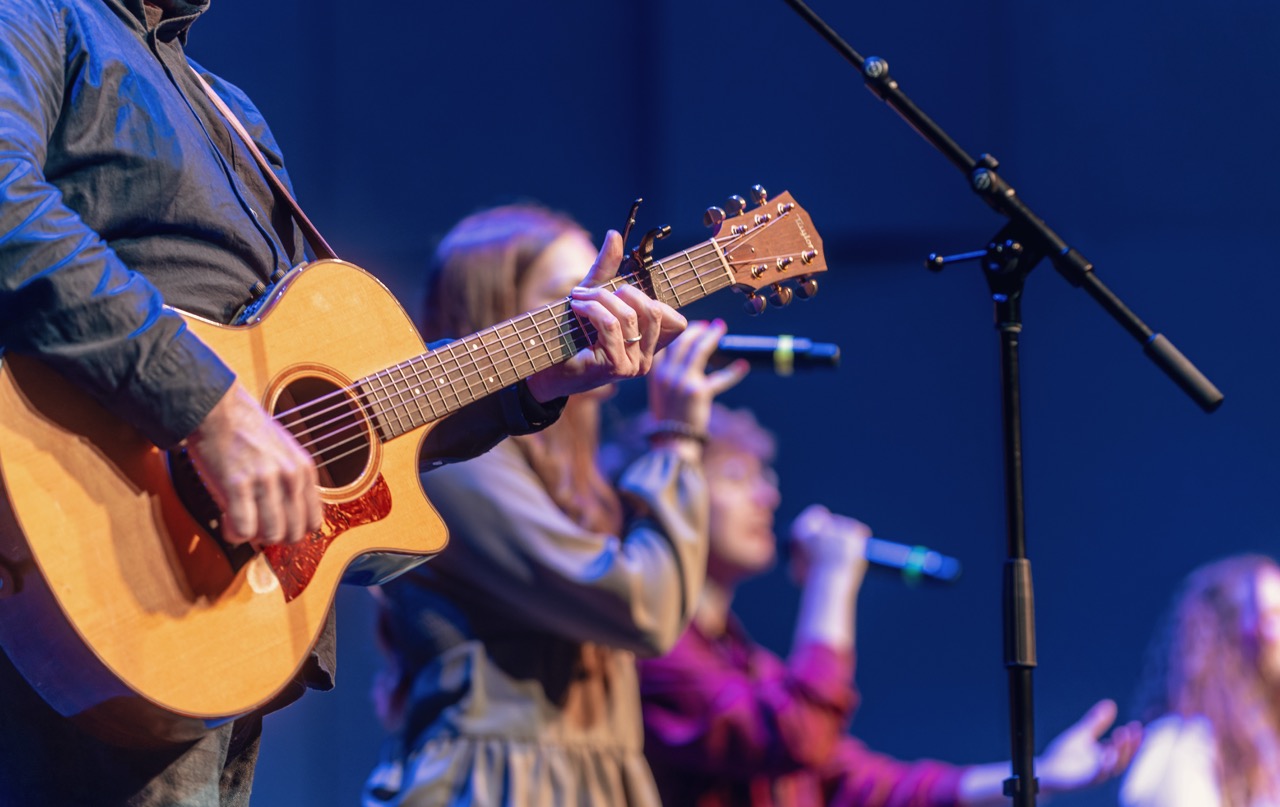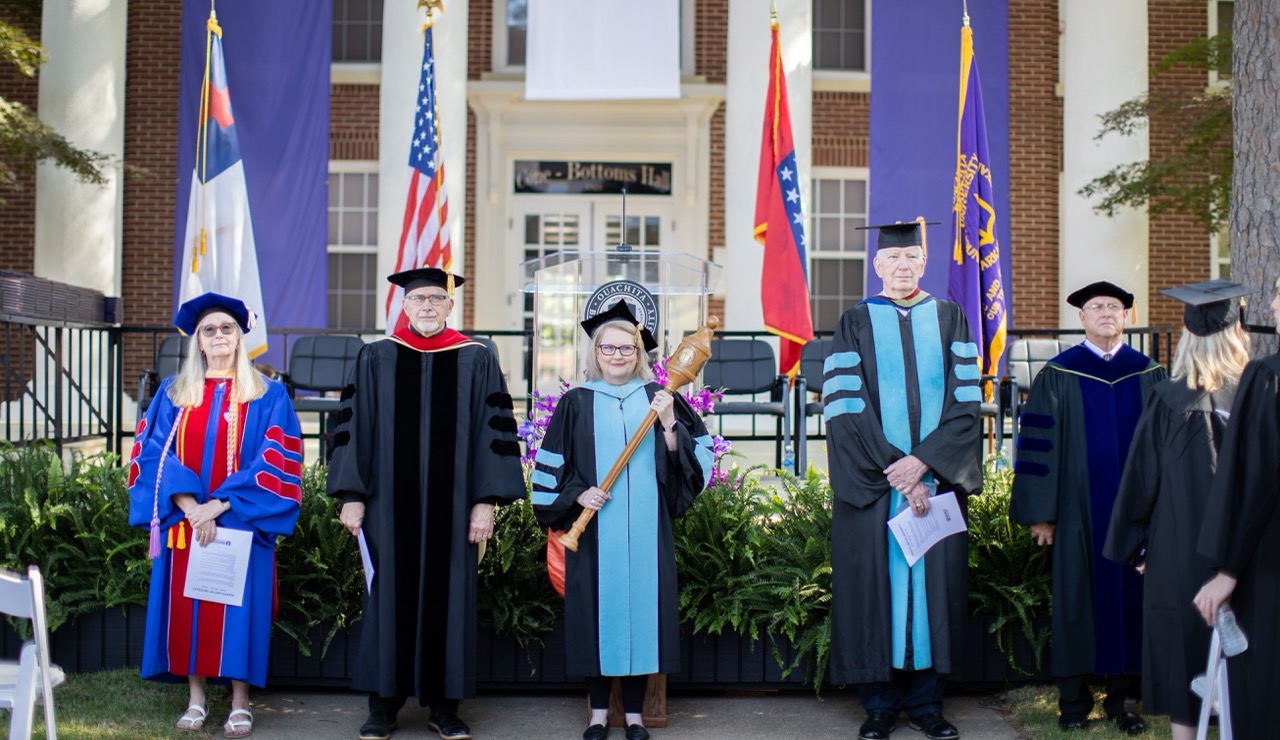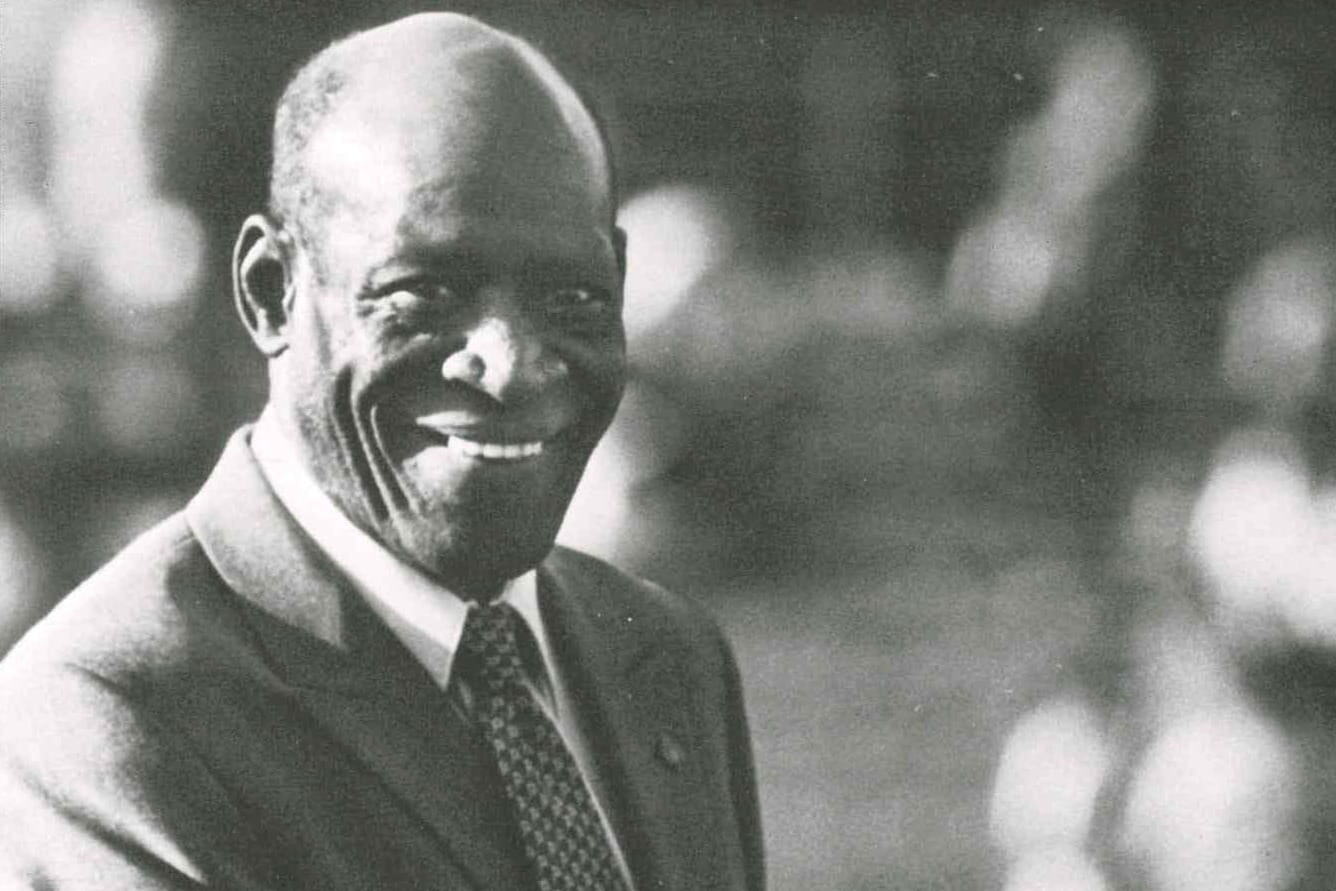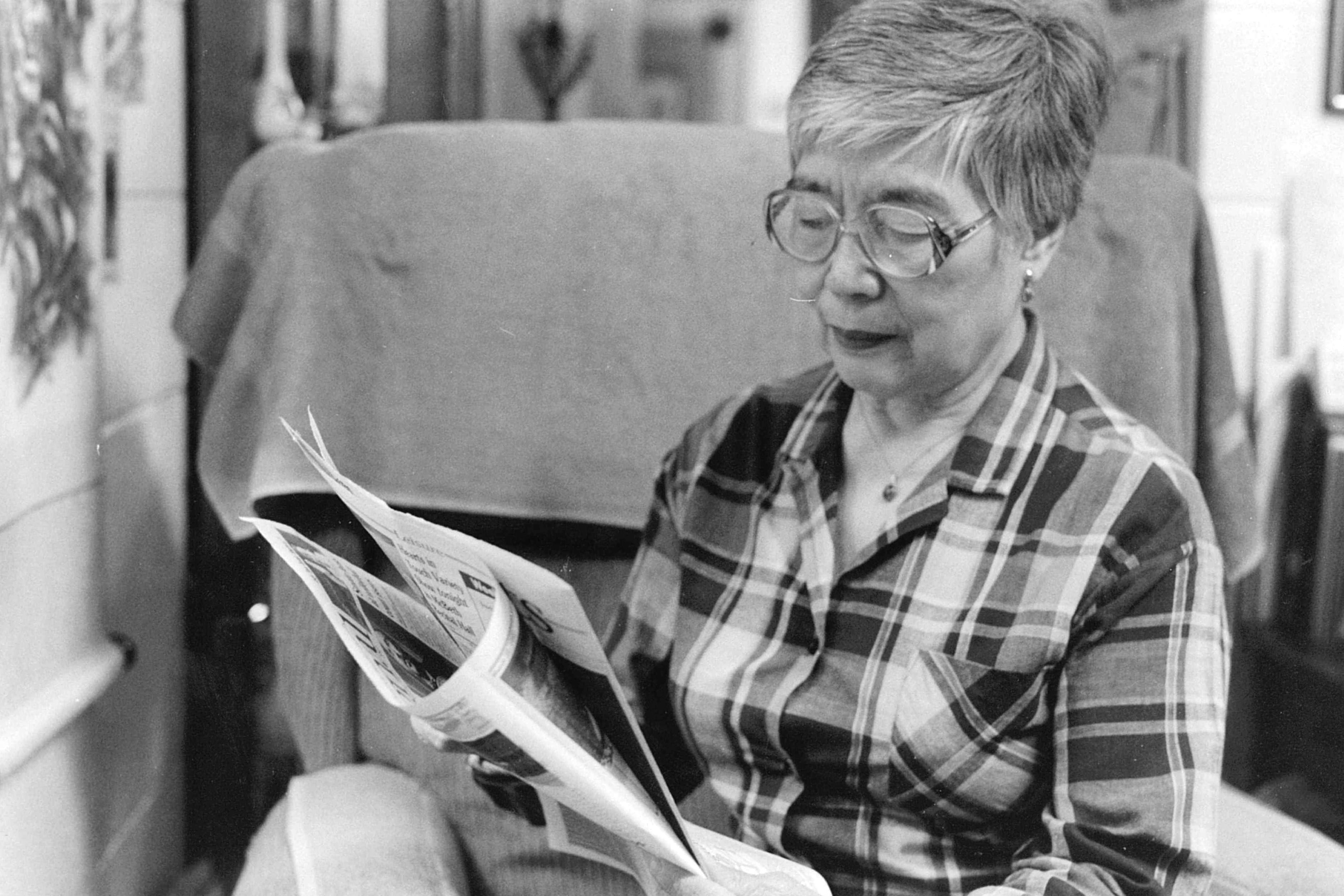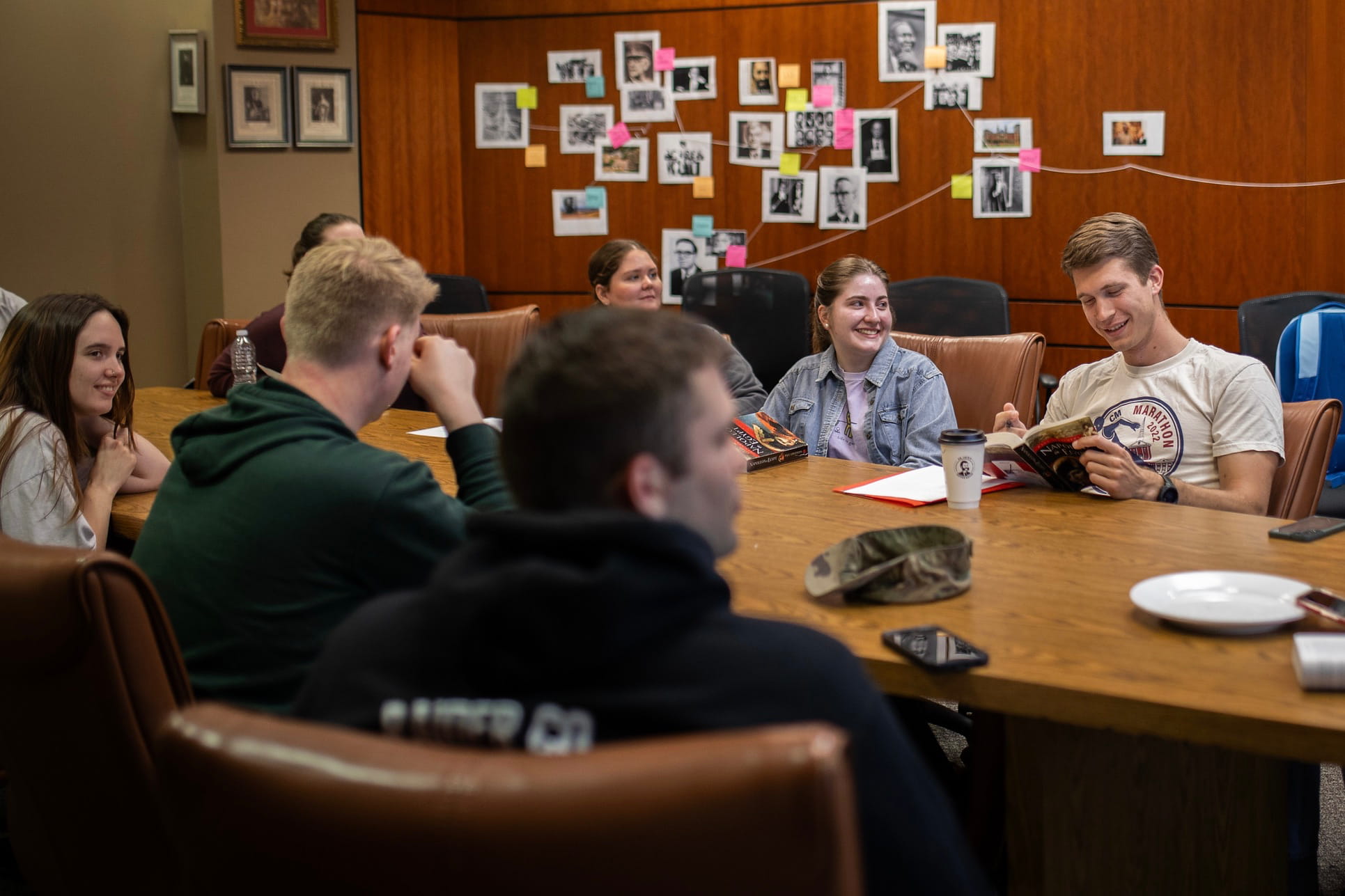Equipping leaders
Worship Arts Program combines hands-on music experience with theological training
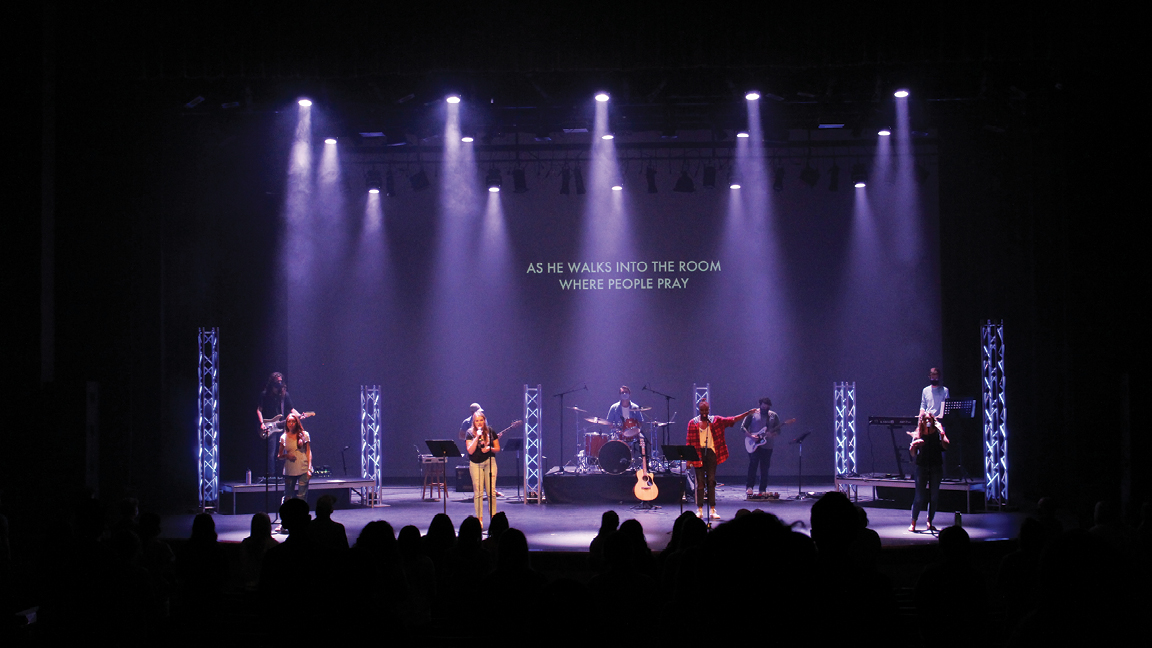 December 14, 2021
- Rachel Gaddis
December 14, 2021
- Rachel GaddisWith its strong history of producing worship leaders who serve in well-known churches in Arkansas, Texas and beyond, Ouachita’s School of Performing Arts has been on the radar of local churches for decades. And as the ministry of worship continues to change, the preparation Ouachita offers also is shifting to equip rising worship leaders.
“Being proficient in music is not enough,” said Larry Grayson, chair of the Department of Worship Arts and instructor of music. “You have to be good at it, but it’s not enough. Students have to be willing to be equipped for ministry. It is crucial for today’s worship leader to be a sound theologian. If you come to Ouachita as a gifted high school worship leader and you leave the same, we’ve failed at our job. We want to equip you musically, spiritually and as a leader to serve the local church.”
Grayson, a 1975 Ouachita alumnus, joined the faculty in the spring of 2020. He previously had served as an adjunct instructor at Ouachita before retiring as the Arkansas Baptist State Convention’s (ABSC) music and worship consultant. Prior to his decade of service at the ABSC, Grayson served churches in Alabama, Arkansas, South Carolina and Texas, including leading worship choir, orchestra, contemporary worship and student choirs and engaging in mission trips across the U.S.
Grayson explained the approach Ouachita’s Department of Worship Arts is taking, which includes equipping students with a theology of worship, training them in ministry skills such as teamwork and budgeting and encouraging them in their own spiritual growth that shapes their hearts for ministry.
Of course, a lot of time also is dedicated to providing students with practical, broad experiences leading worship. The musical skills training is diverse and extensive, including classes such as Applied Voice, Directing the Rhythm Section, Songwriting, Guitar, Keyboard, Conducting and more.
“If I had to count the number of people who thought they would never have to experience leading a choir, I would be in hot water right now,” Grayson said, grinning. “Worship-leading choirs are still very vibrant and alive in the church today, as well as praise teams and bands.
“I tell students: we are training you to serve in any church, any size, any place,” he added. “I’m hoping we can take opinions, styles and tastes out of it and prepare students to go where God wants them to go. How can you know what God has planned for you – which may be incredibly different than what you have in mind – if you’re training for something narrow?”
To maximize worship arts students’ practical experiences, a recent addition to the curriculum is Worship Practicum, which allows students to share their ideas with each other and take turns leading one another.
For Cloe Humphry, a senior worship arts major from Benton, Ark., who felt called to ministry as a junior in high school, Worship Practicum has been one of her favorite classes.
“Worship Practicum is a time where all of the worship arts majors come together every Thursday,” she said. “Guest speakers will visit us in person or talk to us via Zoom. One guest came to show us how to play a Nord keyboard. Other times, we will take turns leading the class in worship, while other times we have band rehearsals so that we can have practical, hands-on experience in front of a band.”
Worship arts students also are required to complete a 150-hour internship, which 2021 graduate Andrew Coop said “has already proven invaluable.”
“More than 18 months after I finished my internship, I found myself using the same knowledge that I gained from that experience,” said Coop, who hails from Liberty City, Texas. “Seeing how things I learned in the past come into play in different areas down the road is a neat experience.”
Looking back on his time as a worship arts major at Ouachita, Coop reflected that he became “much more well-rounded and now possess tools that will continue to stretch and grow me in whatever God calls me to do.”
“I was sharpened in some musical skills I had a loose grasp on, coming in,” Coop explained. “I also learned how to use technological tools (which were completely new to me) that I can employ in future ministry situations. I also was presented with issues that arise in the church, which challenged me and therefore improved my ability to respond.”
Another opportunity worship arts students are excited about is Ouachita Worship, the student worship band formed in 2018 to lead worship during Ouachita’s weekly Chapel gatherings. While students have led worship at chapel for decades, this audition-only group has formalized the process, seeking to parallel the professional worship leader training they receive in class. Ouachita Worship has three rotating student teams, is available to travel to lead worship at churches in the region and even composes songs. In January, they released their first original song, “Holy Fire,” to Spotify, Apple Music and YouTube, gaining nearly 30,000 views and streams.
“Ouachita Worship is a fantastic opportunity for students and has only grown stronger and better because of the experiences they’ve had together,” Grayson said. “Churches benefit, but our students do, as well. That’s really important.”
The Department of Worship Arts has even more plans to continue adapting its degree to become increasingly practical and relevant to both students and churches.
“To stay current and relevant with our approach of instructing potential worship leaders, the faculty is working on revisions to our current worship arts degree and is close to promoting a new and exciting curriculum in the future,” said Dr. Gary Gerber, dean of the School of Performing Arts. “I’m grateful to Larry – and to Dr. Rob Hewell, our former worship arts chair, now director of Ouachita Online, who brought us to where we are today – and to our faculty and alumni who have offered outstanding feedback and insights.”
Grayson insists that even as curriculums or degree requirements evolve, Ouachita’s personal approach to higher education won’t change.
“Our relationships with one another, the hands-on attention … that’s different at Ouachita,” he said. “As long as God lets me live, I’m going to stick with you for life and be your biggest supporter as you walk through your ministry. We all feel that way, and I believe that makes us different.”
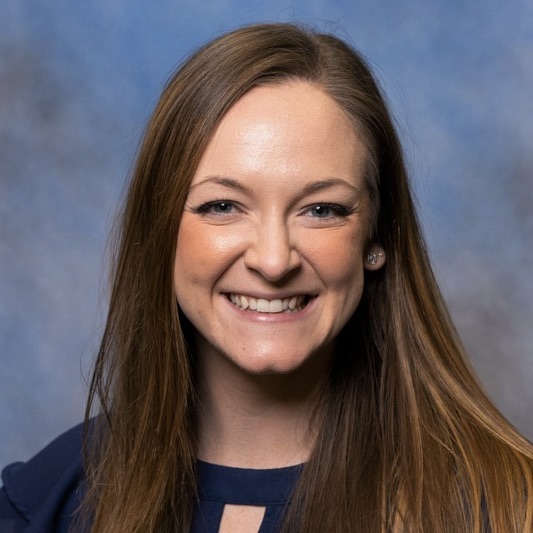 By Rachel Gaddis, editorial coordinator
By Rachel Gaddis, editorial coordinator
You Also Might Like
Recent
Ouachita reports Spring '26 enrollment, led by 50% increase in graduate students
February 11, 2026